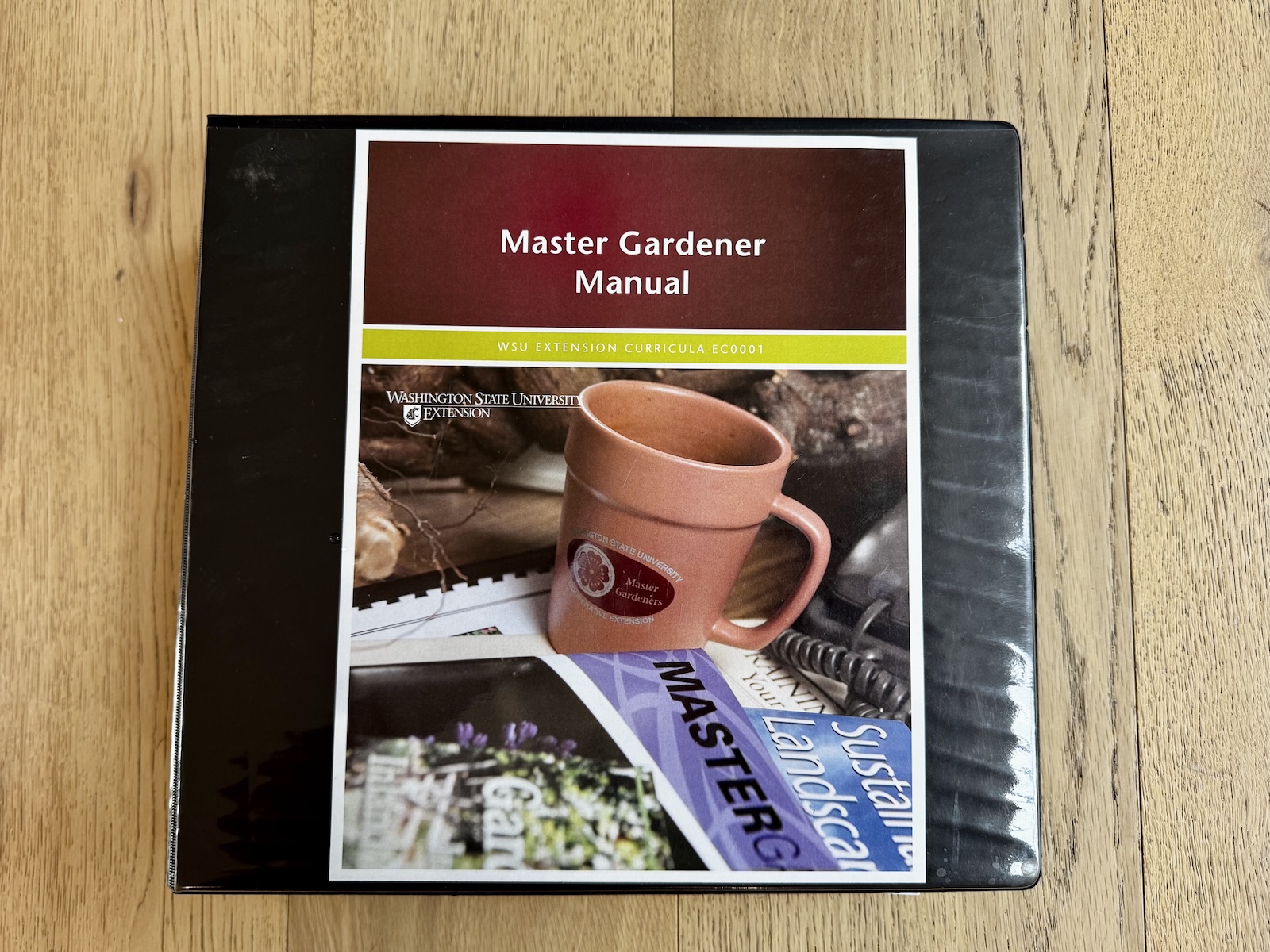The Master Gardener Program originated in Washington State in the early 1970s in response to a growing public demand for accurate, science-based gardening information. At the time, Washington State University (WSU) Extension agents were focused primarily on crop production. However, rapid urban growth and an increasing interest in home gardening revealed the need for a program emphasizing urban horticulture.
Origins of the Program
In 1971, David Gibby (King County) and Bill Scheer (Pierce County) began urban horticulture assignments for WSU Extension. Overwhelmed by the volume of inquiries from the public, they sought a solution to scale their outreach. Inspired by the German concept of the “Gartenmeister” (master gardener), Gibby and Scheer devised a program to train volunteers as educators, equipping them with the horticultural knowledge needed to assist the public.
The concept was tested in 1972 with a trial clinic at the Tacoma Mall. The enthusiastic public response confirmed the need for the program. In 1973, Gibby and Scheer launched the first official Master Gardener training program, drawing over 600 applicants and accepting 200 for the initial training.
The First Master Gardeners
The first training sessions covered a range of horticultural topics, including ornamental plants, lawns, fruits, vegetables, pest management, and the safe use of pesticides. Volunteers attended 40 hours of classroom instruction over five weeks, passed subject matter exams, and committed to volunteering a specified number of hours assisting the public. The initial training was held at the Renton Library (King County) and Tacoma Grange Hall (Pierce County), with support from WSU faculty specialists.
The program quickly expanded. By the end of 1973, training was offered statewide, including in Spokane County. Gibby left WSU later that year, and Sharon Collman took over as the King County Extension Agent. Collman played a pivotal role in solidifying and expanding the program across Washington and beyond.
National and International Growth
The Master Gardener concept resonated far beyond Washington State. By the late 1970s, other land-grant universities across the United States adopted the program. Today, Master Gardener programs exist in every U.S. state, as well as in Canada and South Korea. The program is recognized for its adaptability, with volunteers addressing community-specific needs such as pest management, environmental sustainability, and youth education.
Expansion and Evolution
Over the decades, the Master Gardener Program evolved from its original focus on plant clinics to encompass a broader range of educational and environmental initiatives. Demonstration gardens, workshops, lectures, and youth programs became key components.
The program has grown to include over 85,000 volunteers in the USA. These volunteers contribute hundreds of thousands of hours annually, promoting science-based horticultural practices and fostering environmental stewardship.
The Legacy of Leadership
Leaders such as George Pinyuh, Mary Robson, and Tonie Fitzgerald have significantly shaped the program’s success. Under their guidance, the program has developed robust resources, such as the Master Gardener Manual and online training modules. Additionally, the program’s collaborative efforts with universities, government agencies, and community organizations have enhanced its impact.
A Flagship Volunteer Program
In 2023, the Master Gardener Program celebrated its 50th anniversary, marking five decades of community education and environmental leadership. What began as a grassroots initiative in Washington State has become a global model for volunteer-driven horticultural education. The program continues to grow, adapting to new challenges and expanding its mission to foster sustainable gardening practices and vibrant communities worldwide.
How Okanagan Master Gardeners and MGABC fit into the International Master Gardener Network
The Okanagan Master Gardeners (OMG) are part of the Master Gardeners Association of British Columbia (MGABC), which represents chapters across the province. MGABC is a member of the larger network of Master Gardener organizations in Canada, the USA, and internationally, aligning with the shared mission of fostering community education and sustainable gardening practices.
Globally, Master Gardener programs operate through a network of associations and organizations, primarily based in the United States and Canada, with growing participation in overseas countries like South Korea. Each program adheres to the foundational principles established by Washington State University Extension, emphasizing research-based horticultural education and community volunteerism. Through this network, OMG benefits from access to resources, training materials, and best practices shared by other Master Gardener associations.
References
The Master Gardener Program – a WSU Extension success story: Early history from 1973, by David Gibby, William Scheer, Sharon Collman, George Pinyuh, Updated in 2008 by Tonie Fitzgerald, WSU Extension Statewide Master Gardener Program Leader, Updated in 2017 by Sharon Collman, WSU Emeritus Professor.
Washington State University Extension Master Gardener Program: The history of our program.
Washington State’s Master Gardener Program: 30 years of leadership in university-sponsored, volunteer-coordinated, sustainable community horticulture, by Linda Chalker-Scott and Sharon J. Collman.
